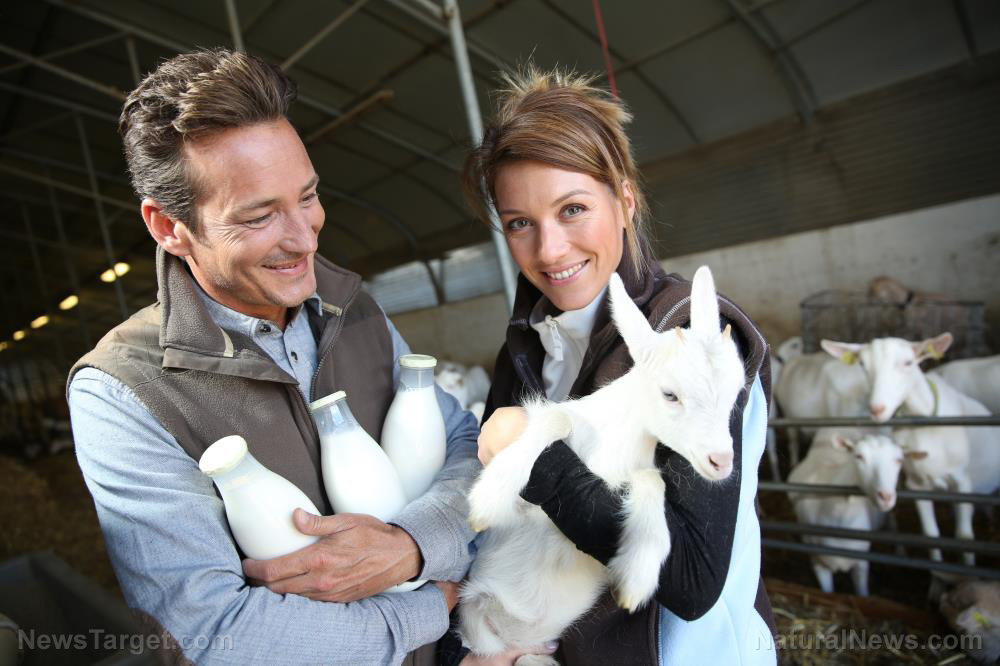
some of this is happening, but what is missing is internally trained farmers. It is very challenging otherwise. at least we have a rising appitite.
I do think that we need to end poverty and use that platform to provide quality young manpower for agriculture. Also based on a four hour assured shift.
This system will easily empower young boys and girls to learn the skills.
Young workers ditching the office to work on farms
Monday, October 18, 2021 by: Ramon Tomey
Tags: career shift, covid-19 pandemic, desk jobs, farm work, farming, freedom, green living, harvest, living free, manual labor, office jobs, work monotony, Wuhan coronavirus
https://www.naturalnews.com/2021-10-18-young-workers-ditching-office-work-on-farms.html
(Natural News) The Wuhan coronavirus (COVID-19) pandemic has made many young workers rethink their jobs and careers. With many suffering from burnout while working desk jobs, some have shifted to doing manual labor as farm workers.
CBS News talks to two individuals – James Marriott and Cat Steckbeck – who have given up their office jobs to work on a farm.
Twenty-four-year-old Marriott leaves his home before the sun rises. He commutes to work, passing by the crowded streets of Boston – but he is not going to an office in the city. Rather, he heads to Drumlin Farm at Lincoln, Massachusetts.
Marriott has degrees in neuroscience and global health, a perfect fit for his earlier job at a biotechnology firm’s laboratory. He used to develop vaccines in his former job, but his current farm work requires a different skill set. Alongside his farm duties, Marriott is pursuing a master’s degree in epidemiology.
“This was a very intentional decision, not something like ‘I don’t know what to do, let me just go work on a farm.’ This is how I want my life to go. I don’t see myself doing this forever, but I will always keep farming in some kind of way,” he says.
Meanwhile, physical therapist Steckbeck has chosen the green outdoors instead of the hospital. She says: “It was a very stressful time. For me, it was just not the right setting – and I think [COVID-19] certainly sped up the feelings of burnout.”
Steckbeck’s decision to shun a hospital job comes with a price. Aside from callused hands and a sore back, her income has dropped by a little more than 50 percent of what she received from her previous job. “It’s been a life adjustment. I mean, it’s certainly reevaluating what I choose to spend my money on,” the former hospital worker adds. (Related: Pandemic drives Americans away from expensive cities.)
Despite being unsure if her career move is permanent, Steckbeck says the COVID-19 pandemic has helped her realize that life is fragile and that she should spend time doing what makes her happy. She says: “I kind of thought it might just be a break. Maybe it is and maybe it’s not.”
COVID-19 pandemic has made people rethink their careers
Drumlin Farm Crops Manager Matt Celona says he is not surprised by the applicants looking for work on the farm. “Makes sense to me. They tried a job, they don’t like it. They want to try something else. They have an interest in the environment,” he elaborates.
Marriot and Steckbeck – both in their 20s – join the many workers in their age group who have shifted careers entirely as the COVID-19 pandemic swept the United States. Their transition to farm work is part of a “seismic shift.”
According to a study done in July 2021, nearly a third of U.S. workers under 40 years old have considered changing careers during the pandemic.
A February 2021 report by McKinsey & Company touched on how the COVID-19 pandemic has affected different sectors of work. The report named 10 work arenas that have varying levels of physical proximity, or interaction between people. It noted that “work arenas with higher levels of physical proximity” such as healthcare and retail “are likely to see greater transformation after the pandemic.” (Related: Jobless claims spike to 6.6 million, doubling last week’s record, as layoffs mount amid coronavirus pandemic.)
The report notes that the outdoor production and maintenance arena suffered the least impact from COVID-19. “Work in this arena requires low proximity and few interactions with others, and takes place fully outdoors,” it says.
However, Marriot shares a deeper reflection about his shift to farm work. He says: “We’ve all kind of felt like we’re cogs in the wheel of this larger system that we didn’t really want to be a part of. This was our way of taking back our lives and just being like ‘this is what we want to be doing’ rather than doing something that we felt we had to be doing.”
Pandemic.news has more articles about American workers shifting careers entirely during the COVID-19 pandemic.
Sources include:
No comments:
Post a Comment